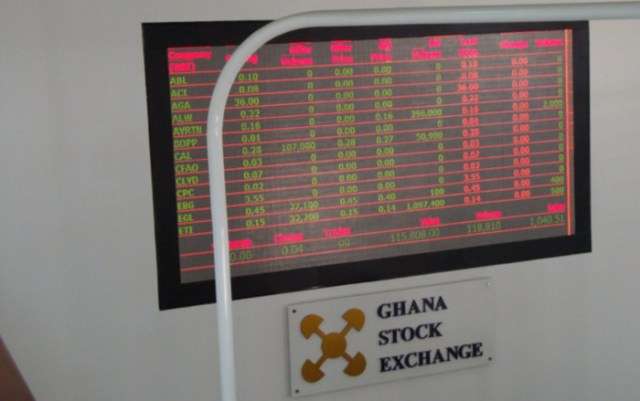The Ghana Stock Exchange (GSE) Composite Index experienced a modest 1.47% downturn in the month of October compared to the previous month (September) while maintaining a commendable year-to-date return of 27.89%.
Concurrently, the GSE Financial Stock Index displayed resilience, registering an 89.3-point increase over the month, albeit still grappling with a year-to-date loss of 3.56%.
Amidst these market dynamics, the GSE October 2023 report noted that both trading volume and overall value witnessed substantial declines of 79.42% and 77.98%, respectively, in contrast to the prior month’s figures.
Notably, the top-performing equities for the month included EGH, exhibiting a notable 37.21% price gain, along with ACCESS, BOPP, and ASG, posting gains of 9.68%, 6.98%, and 0.11%, respectively.
In terms of market activity, the trading landscape saw a notable slump with a monthly trading volume of 11,869,147 and a total value traded amounting to GHS 18,960,316.20.
These figures reflected a significant decrease of 44.39% in trading volume and a substantial 87.34% reduction in value, compared to the same period in the previous year.
For the year, the cumulative traded volume reached 424,492,051 shares, with a total value of GHS 579,764,222.77, representing declines of 67.39% and 59.72%, respectively, compared to the corresponding period in the preceding year.
Meanwhile, the Ghana Stock Exchange Composite Index (GSE-CI) is a crucial indicator of the health and performance of the Ghanaian stock market. When it trends upward, it signals optimism and economic growth.
However, when it declines, as it has done recently, it raises concerns and prompts questions about the state of the economy and investment climate.
The GSE Composite Index is a market-capitalization-weighted index that tracks the performance of companies listed on the Ghana Stock Exchange. It provides a snapshot of how well these companies are performing in the market and how investor sentiment is evolving. As such, a decline in the GSE Composite Index suggests that the majority of these companies are facing challenges in maintaining or growing their stock prices.
These developments underscore the nuanced landscape in the GSE equities market, impacted by a range of economic factors and investor sentiment.
Implications of the Decline
The decline in the GSE Composite Index can have various implications for different stakeholders. If you’re an investor in Ghana’s stock market, a declining index may lead to a decrease in the value of your investments. This could prompt you to reevaluate your investment strategy or consider diversifying your portfolio.
Companies listed on the stock exchange may find it more challenging to raise capital or issue new shares when the index is in decline. It could also impact their ability to attract investors and partners.
A declining stock market may cause concerns for regulators and the government as they assess the overall economic health of the country and take steps to restore confidence in the market.
Moreover, a falling GSE Composite Index could be seen as an indicator of a less favorable economic outlook. It might affect consumer and business sentiment, influencing decisions related to spending, investment, and expansion.
READ ALSO: Saga Of Pain And Destruction Marks Milestone



















